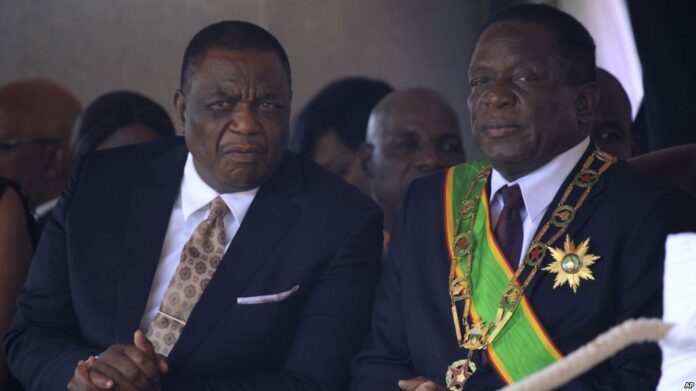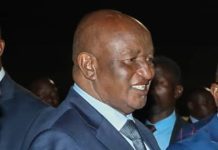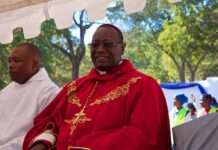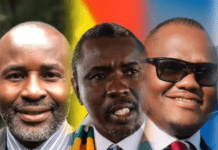HARARE –Zimbabwe’s 2028 presidential race is still three years away, but the succession fight inside ZANU-PF has already spilled far beyond the country’s borders, drawing in powerful global players and exposing the rifts at the heart of the ruling party.
Parallel Tracks to Power
While ZANU-PF’s elective congress is not due until 2027, President Emmerson Mnangagwa and his deputy, retired General Constantino Chiwenga, are already on competing diplomatic missions that hint at an international dimension to their rivalry. Mnangagwa has made Beijing his diplomatic anchor, cultivating China’s Belt and Road investments and showcasing mega-projects such as the Hwange thermal expansion and new lithium ventures.
Chiwenga, by contrast, has deepened outreach to India, leveraging historical ties through the Non-Aligned Movement and pitching Zimbabwe’s agricultural and pharmaceutical sectors to Delhi. His recent tour of Gujarat’s industrial corridor, coupled with bilateral health-sector agreements, has been framed as a push for “South-South cooperation,” but insiders view it as a calculated move to establish an independent foreign-policy profile.
Factional Undercurrents
High-ranking ZANU-PF officials and diplomatic sources describe a party increasingly split between two camps. “This is not just about 2028; it’s about who controls the state today,” a senior government insider told this newspaper on condition of anonymity. “The president leans on old liberation networks and Chinese financing. Chiwenga is building a coalition of younger military and technocratic figures, and India provides a neutral but influential stage.”
Party politburo members privately concede that Chiwenga’s military pedigree remains his strongest card. “He commands loyalty within the armed forces,” said one provincial chairperson, “but Mnangagwa has the party machinery and the Chinese checkbook.”
Beijing and Delhi: Calculated Engagement
Chinese officials publicly downplay any role in Zimbabwe’s internal politics, yet state-owned enterprises continue to pour capital into strategic sectors from mining to energy. “China’s interest is stability and resource security,” said Dr. Nyasha Madembo, a Harare-based political economist. “If that means quietly signalling support for the incumbent, they will not hesitate.”
India, for its part, has stepped up lines of credit and agricultural cooperation, with New Delhi’s foreign ministry framing ties as “mutually beneficial development partnership.” Analysts suggest India sees an opportunity to balance China’s dominance in southern Africa and views Chiwenga’s overtures as a pragmatic engagement rather than outright endorsement.
A History of Rivalry
The Mnangagwa–Chiwenga relationship was forged in the 2017 military intervention that toppled Robert Mugabe. Initially allies, their partnership frayed as the post-coup government struggled with economic crises and competing ambitions. Publicly, both leaders deny any rift, but the symbolism of divergent travel itineraries has not gone unnoticed by party cadres and the diplomatic corps.
The Road to 2027
ZANU-PF’s constitution dictates that its 2027 elective congress will determine the 2028 presidential nominee. However, party insiders warn that the stakes—control of lucrative mining concessions, security networks, and foreign investment—may provoke an earlier confrontation. “The jockeying is already destabilising policy,” said a retired diplomat. “Foreign missions see it, investors see it, and the opposition is watching for an opening.”
Implications for Zimbabwe
For ordinary Zimbabweans, the externalisation of the succession fight brings both risk and opportunity. Chinese and Indian investments could generate jobs and infrastructure, but analysts warn that deals driven by factional survival may lack transparency and long-term national benefit. “When external powers are drawn into internal battles, the public interest is often the first casualty,” said constitutional lawyer Linda Mudzonga.
As 2027 approaches, Zimbabwe’s internal succession drama is no longer a domestic affair. With Beijing and New Delhi now subtle but unmistakable backdrops, the contest between Mnangagwa and Chiwenga has become a geopolitical chess game—one whose outcome could redefine southern Africa’s balance of influence for years to come.











